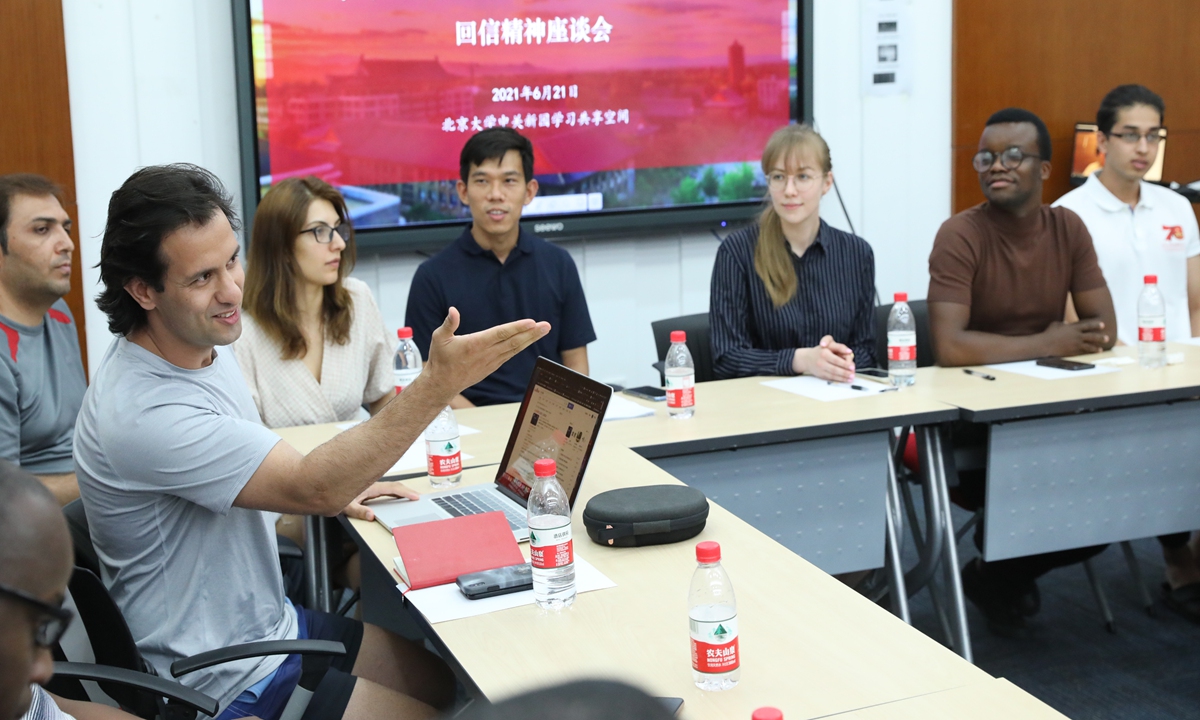IN-DEPTH / IN-DEPTH
International influence of Chinese education is continuously increases

Overseas students at Peking University share their feelings after receiving President Xi's letter in June 2021. Photo: Courtesy of Peking University
In the last decade, China has remained steadfast in its commitment to opening up to the world, continuously creating new patterns of academic opening-up, and enhancing its international cooperation and exchange in education comprehensively.
Chinese education has taken a more open, confident, and proactive approach on the world stage, and China's international influence in education has continued to increase.
Since the 18th National Congress of the Communist Party of China (CPC), China has widely carried out education cooperation and exchanges with 181 countries with which it maintains diplomatic relations. It has cooperated with 159 countries and regions to establish Confucius Institutes (Confucius Classrooms), signed degree and diploma recognition agreements with 58 countries and regions, and established 23 "Luban Workshops," according to the Ministry of Education in September 2022.
In 2018, a total of 492,185 foreign students from 196 countries and regions studied in 1,004 institutions of higher learning in 31 provincial regions across China. South Korea, Thailand, Pakistan, India, the US, and Russia were the top countries from which foreign students came.
China has become an important study destination country for Asian and African students.
Unlike the stereotype that "international students in China generally have scholarships" and "international students come to China to study because of scholarships", self-financed students accounted for the majority of international students in China, maintaining at around 90 percent, according to the Beijing Daily.
In recent years, China has insisted on taking the "Belt and Road" initiative as a fulcrum to building a strategic pattern of opening education to the outside world. For instance, 68 percent of foreign students with academic qualifications in Shanghai's colleges and universities come from countries along the routes.
Global Times

